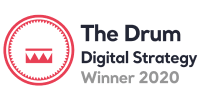 So you’ve read our blog and put into practice some of our best paid advertising tips. How about trying some international PPC?
So you’ve read our blog and put into practice some of our best paid advertising tips. How about trying some international PPC?
The rules behind paid advertising all hold true in the foreign markets. You still have to consider factors such as changing CPCs, average positions, quality scores, and sending customers to relevant pages on your site.
However, there are some important considerations to bear in mind when starting an international PPC campaign. It stretches much further than simply “how to use AdWords”, and demands a very good knowledge of your target market and that country’s online search behaviour.
Good Market Knowledge
By this, I don’t simply mean “I want to sell goods in France, where they speak French”. You need to research online behaviours in this country.
Factors to consider include:
Which Search Engine Is Dominant in That Country?
In China, Baidu dominates the market rather than Google. In Russia, the market leader is Yandex. Interestingly, due to the history of the region, certain countries in Eastern Europe use both Yandex and Google. You may find that in certain countries the market for paid advertising on Google is saturated and therefore very expensive – but Bing may turn out to be an option.
This information will determine how costly and effective your paid campaigns will be. It will help you to understand which platforms you need to prioritise and familiarise yourself with.
Who Is Your Target Audience?
And does this match the online population of that country? For instance, imagine the age bracket of your target market is 50+, but the online population of that country is comprised of 80% 18-24 year olds. If this is the case, online advertising may not be the best idea. Similarly, say you wanted to advertise online in East Germany. According to this article, that wouldn’t necessarily be wise due to the continued effects of the Iron Curtain.
Either way, you’d need to keep these cultural/historical factors in mind.
Which Languages Are Spoken?
For best results, you’ll need a separate campaign for every dialect that’s spoken in your target country. For certain B2B businesses, many business transactions may take place in English.
Cultural Habits
If you are an ecommerce company selling in China, the colour of wrapping paper is very important: gifts are often wrapped in red, a Chinese symbol of good luck. However, yellow wrapping paper with black writing is reserved for gifts for the dead. Being aware of these cultural factors is essential in pleasing your target market.
User Behaviours
In a market completely dominated by mobile devices, you wouldn’t want to send potential customers to an unresponsive site: you would immediately lose them. Conversely, in certain markets, mobile purchases are still not commonplace. In this case you’d make bid adjustments prioritising desktop devices. Again, this requires research.
Competitor Landscape
Getting to know your international competitors is essential. You need to know what they are doing for their customers so that you can compete. You may also learn that the online market for your particular industry has been completely saturated, making it too expensive due to very high CPCs. Or you may discover that very few companies are using online advertising in that country, which would put you in great stead to start.
CPCs
It stands to reason for different countries to have different CPCs. Wordstream wrote an article detailing the average CPC by country and the regions which have the highest costs per click. I wouldn’t take this information literally, as it depends on sectors and market saturation, as well as other factors. Nonetheless, it’s a good baseline for research.
Tips for Setting up International PPC Campaigns
In order to effectively measure ROI for each region/country that you are trying to target, it’s best to keep things meticulously organised. This also helps with setting up highly targeted campaigns:
Country Specific Accounts
This makes it easier to track the impact of your campaigns in that specific country and makes settings much easier to change. For instance, you may have an account targeting Switzerland that has separate campaigns in French, Italian and German. Each of these campaigns would need different language and geographic settings.
Language Specific Campaigns
I would highly recommend having separate campaigns for different languages. This will make it easier to add keywords and ads in that specific language, keeping things simpler and far more organised for you. Similarly, AdWords does allow for extra characters in the titles and description of ads targeting certain Asian or Eastern European countries – find out more about this here.
Consistency is key: you want a Spanish campaign targeting the Spanish language in Spain that uses Spanish keywords to trigger Spanish ads that lead to a Spanish website.
Something else to keep in mind: regardless of the country that you are trying to target, you may want to keep a campaign targeting English keywords. This means that you would reach English people living abroad. This depends entirely on the nature of your business and what you are trying to achieve with online advertising.
Remember Time Zones & Different Currencies
You’ll need to keep time zones in mind for setting ad schedules and bid adjustments. If you’re targeting a country that has multiple time zones, it may be an idea to create campaigns for each time zone – depending on how organised you want to be!
Things to Avoid
Solely using Google Translate
Although useful on occasions such as asking for directions to the train station in a broken tongue, literal translations on Google translate are not enough for PPC campaigns. Particularly if you don’t want to lose budget due to clicks linked to unrelated keywords.
Hiring a translation company to translate your keywords and write your ads is highly recommended. I’d recommend giving your translation agency a list of negative keywords to translate too.
Only Having an English Website
Imagine searching for something, clicking on an ad and being directed to a website that you only partially understand – or worse, don’t understand at all.
Avoid this mistake at all costs. If you want to advertise to the Portuguese market, make sure that you have a Portuguese website. And by Portuguese website, I mean a website entirely written in Portuguese, with a Portuguese phone number, address and product details.
You need to establish trust in your customers, and your customers will only trust you if they can understand you.




